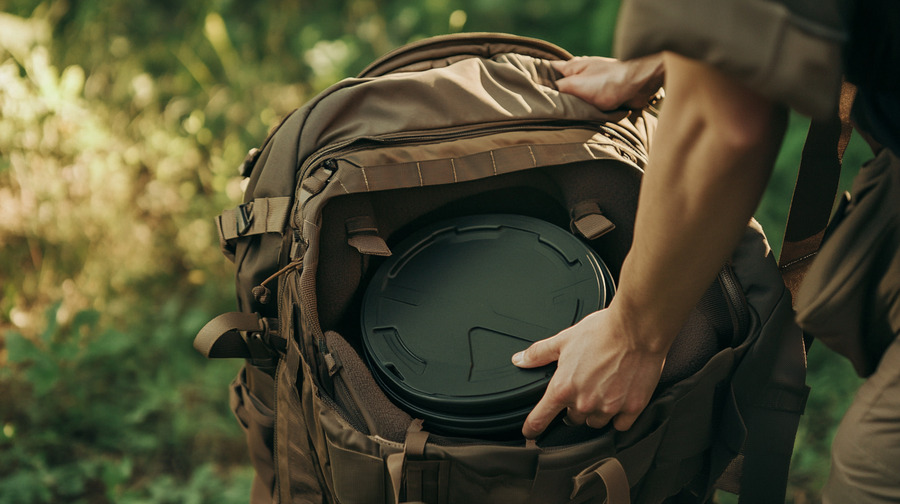If you’re into rucking (or thinking about getting started), you’ve probably realized that the weight you carry is kind of a big deal. The right weight can take your training to the next level—build strength, improve endurance, and make you feel like a total badass. But the wrong weight? That’ll leave you with a sore back, frustration, and maybe a broken backpack.
Some people prefer to make their own sandbag weights or use other household items. But if you want something made specifically for rucking and can be used for other workouts, here are a few to consider.
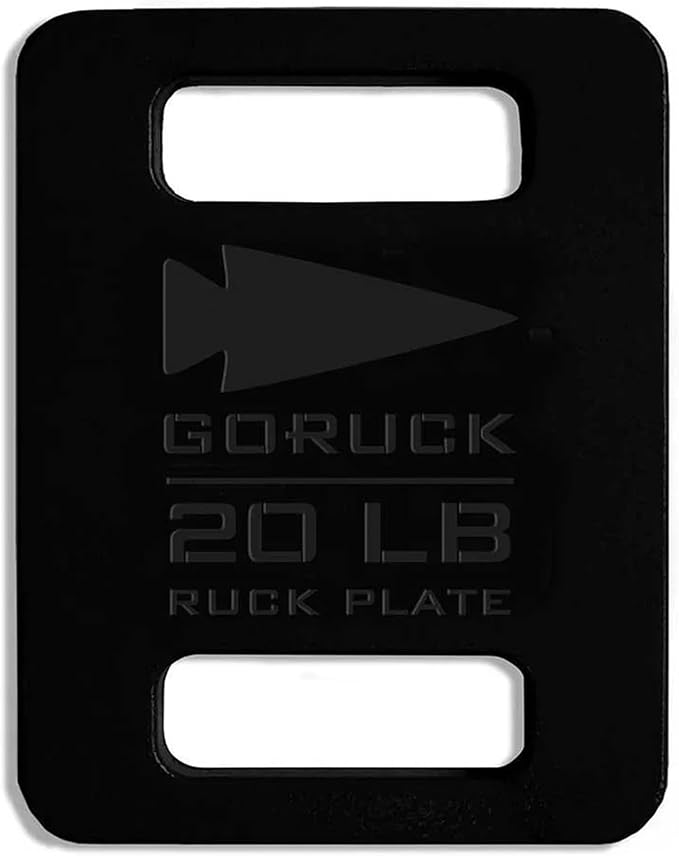
GORUCK Weight Plates
Why It’s Great:
Designed with rucking in mind, GORUCK Ruck Plates are made to fit snugly into GORUCK backpacks, though they work well with other rucks too. Their ergonomic design reduces pressure points, and the smooth finish means no snagging on your gear.
Available Weights:
10, 20, 30, and 45 pounds.
Pros:
- Compact design.
- Specifically made for rucking.
- Durable and corrosion-resistant.
Cons:
- Pricey compared to generic weights.
Yes4All Ruck Plates
Why It’s Great:
These cast-iron weights are an affordable alternative to GORUCK plates. They come in a variety of sizes and fit well in most backpacks. If you’re just starting out or want something that won’t break the bank, Yes4All plates are worth considering.
Available Weights:
5, 10, 15, 20, 25, and 30 pounds.
Pros:
- Budget-friendly.
- Durable and compact.
Cons:
- Edges aren’t as smooth as premium options.
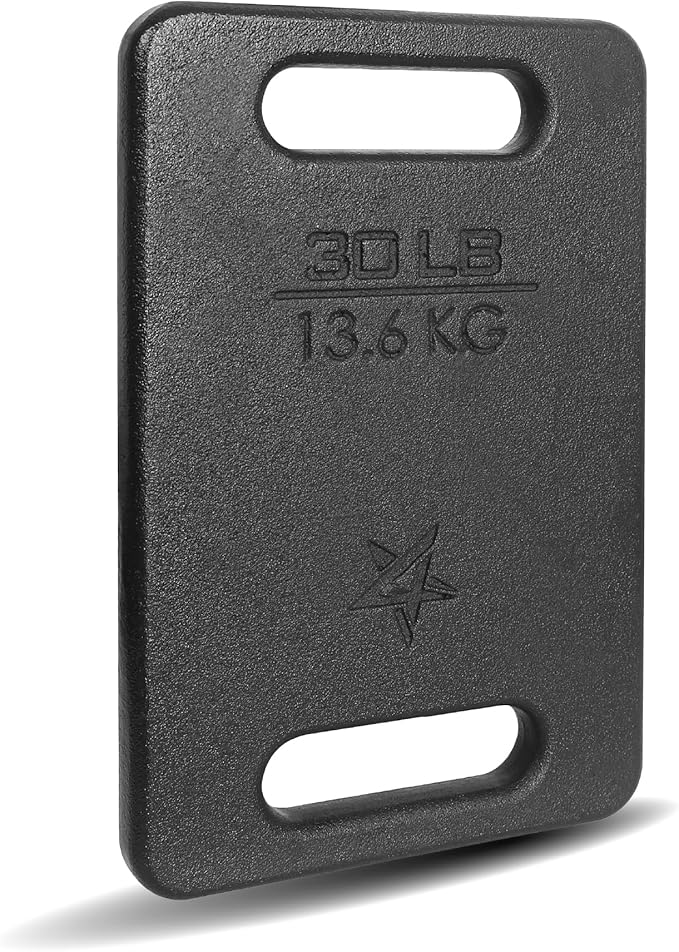
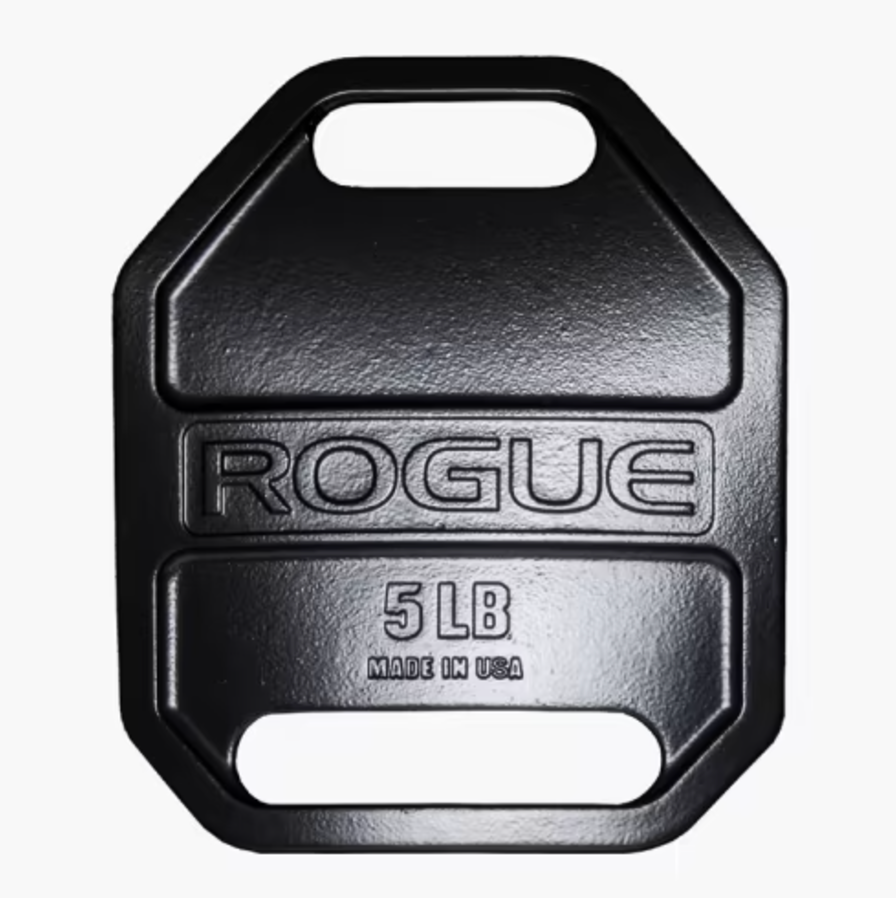
Rogue Fitness Ruck Plates
Why It’s Great:
Rogue Fitness has a reputation for high-quality fitness gear, and their ruck plates are no exception. They feature rounded edges to minimize wear on your ruck and are powder-coated for durability.
Available Weights:
10, 20, 30, and 45 pounds.
Pros:
- High-quality craftsmanship.
- Designed for comfortable carry.
Cons:
- Higher price point.
Hyperwear SandBell
Why It’s Great:
Looking for something versatile? Hyperwear SandBells are soft, sand-filled weights that can be used inside or outside your ruck. They’re perfect for those who want to switch between rucking and other forms of exercise.
Available Weights:
2 to 50 pounds.
Pros:
- Soft and flexible, reducing strain on your ruck.
- Multi-use.
Cons:
- Can leak sand over time if not handled carefully.
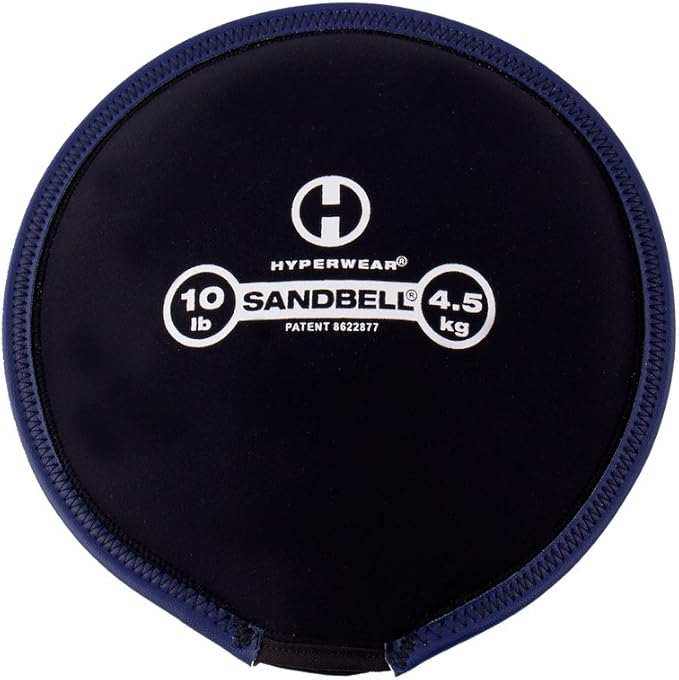
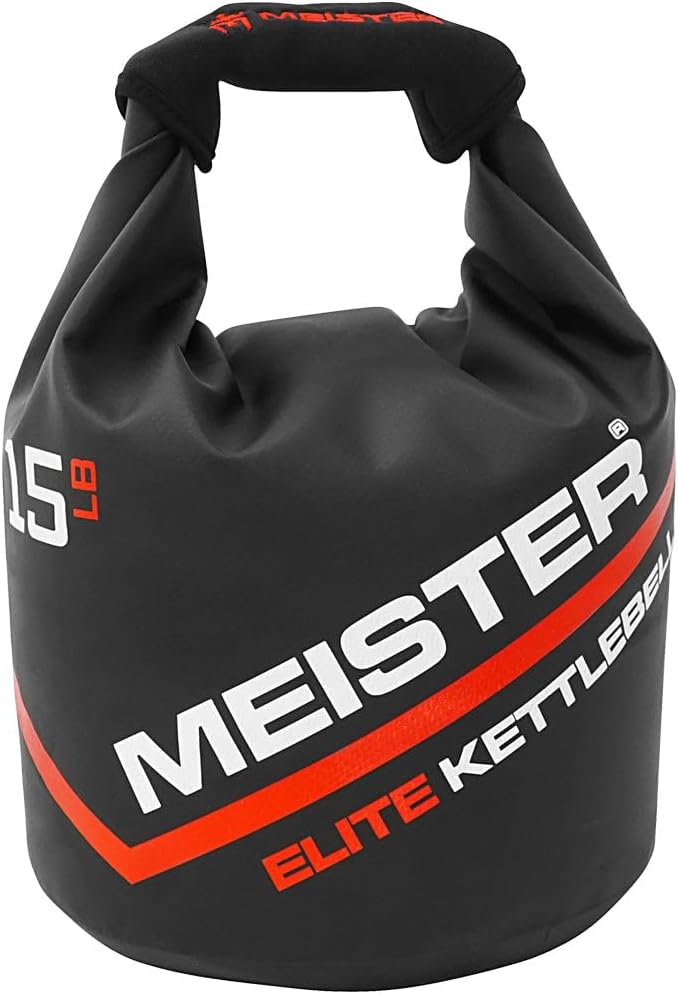
Meister Elite Portable Sand Kettlebell
Why It’s Great:
This is a unique option for those who want adjustable weight. Fill it with sand to your desired level, making it easy to customize for your fitness needs.
Available Weights:
Up to 20 pounds.
Pros:
- Travel-friendly and adjustable.
- Durable material.
Cons:
- Requires sand to fill (sold separately).
Brute Force Sandbags
Why It’s Great:
Brute Force Sandbags are rugged and reliable. They come with multiple handle options, allowing you to use them for more than just rucking. Adjust the weight by adding or removing sand.
Available Weights:
Customizable, depending on filler bags.
Pros:
- Extremely versatile.
- Made in USA
Cons:
- Bulky compared to solid weights.

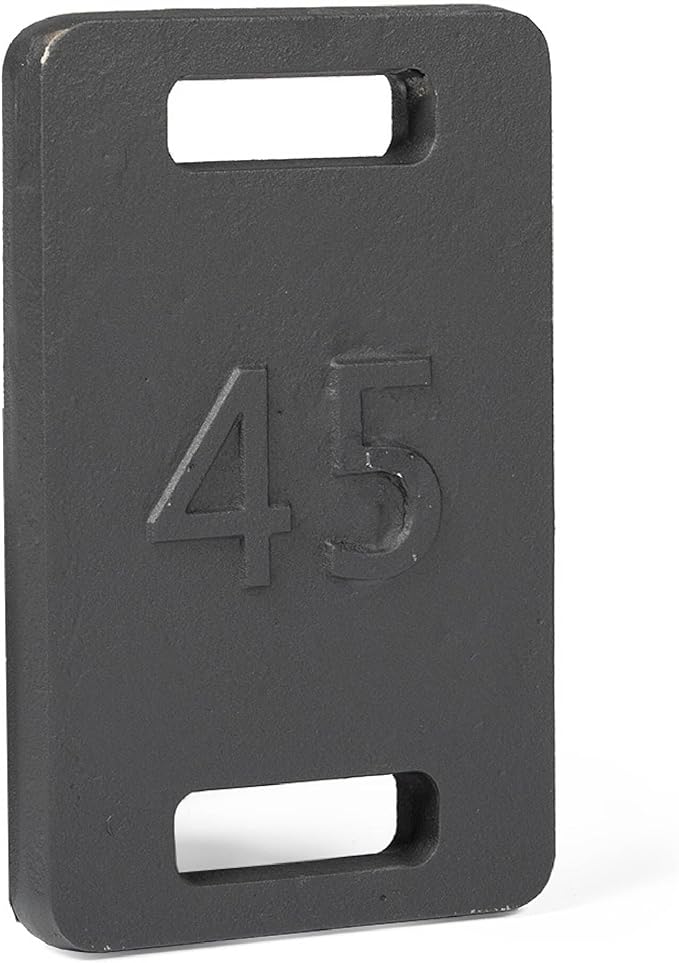
Titan Fitness Ruck Weights
Why It’s Great:
These steel weights are powder-coated for durability and come in a slim design that fits comfortably in most rucksacks. If you’re looking for a basic, reliable option, Titan has you covered.
Available Weights:
10, 20, 30, and 45 pounds.
Pros:
- Durable construction.
- Affordable price point.
Cons:
- Limited weight options compared to others.
Wolf Tactical Ruck Weights
Why It’s Great:
Wolf Tactical offers high-quality weights made from solid cast iron with a protective powder-coated finish. They’re compact and compatible with most rucking backpacks.
Available Weights:
10, 20, 30, and 45 pounds.
Pros:
- Compact and durable.
- Affordable compared to similar products.
Cons:
- Limited availability in some regions.
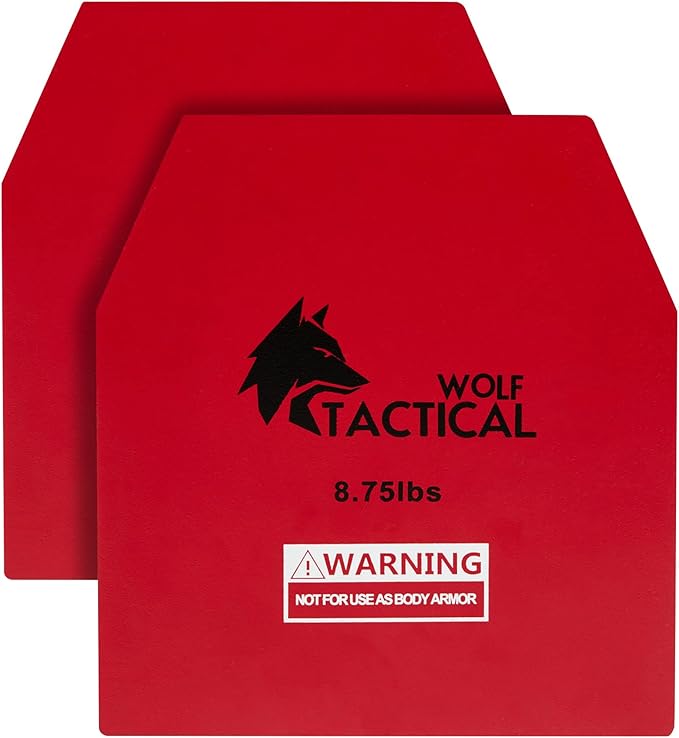
FAQs
What is the ideal weight for rucking?
The ideal weight depends on your fitness level and experience. Here’s a quick guideline:
Beginner: Start with 10-15% of your body weight (e.g., 15-20 lbs for most people).
Intermediate: Increase to 20-25% of your body weight as you build strength and endurance.
Advanced: Go up to 30-35% of your body weight for a serious challenge.
What type of weight is best for rucking?
Ruck plates are the gold standard because they’re compact, durable, and designed specifically for rucking backpacks. Sandbags and DIY solutions are good alternatives if you’re on a budget or prefer adjustable weights.
Can I use a kettlebell or dumbbell for rucking?
Yes, you can use kettlebells or dumbbells, but they’re less ideal because they may shift around in your ruck and can be uncomfortable. If you choose this route, wrap the weight in a towel or secure it with straps to minimize movement.
Are adjustable weights worth it?
Adjustable weights like sandbags or fillable kettlebells are excellent for versatility. They’re perfect for beginners who want to experiment with different weights or for people who travel and need portable options.
Final Thoughts
Each of these options has something unique to offer, so pick the one that best suits your goals, budget, and gear. If you’re serious about rucking, investing in quality weights will serve you well and most can be used for other workouts too. If you’re more budget-conscious, consider a DIY solution, they can still get the job done and can be a great intro into rucking.
Start slow, build up, and enjoy the journey!

